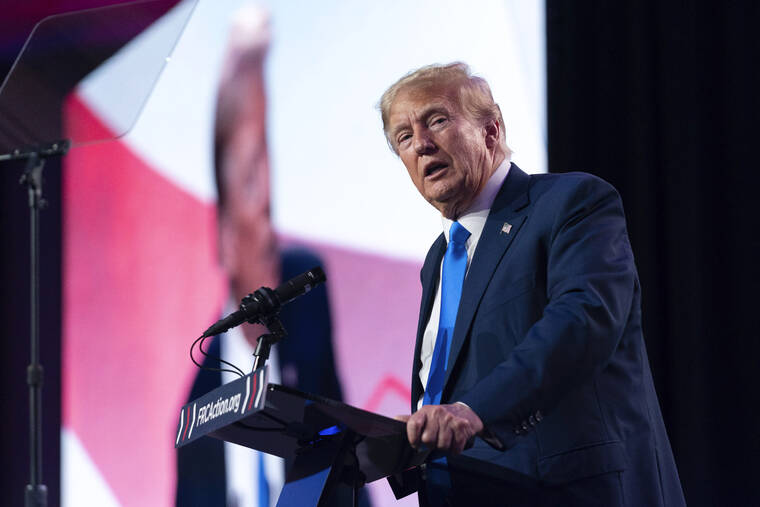WASHINGTON >> In a highly-anticipated hearing, U.S. District Judge Tanya Chutkan will grapple with the delicate task of imposing a gag order on Donald Trump, while respecting his First Amendment rights as a presidential candidate. The proposed order aims to curb Trump’s inflammatory rhetoric, including derogatory remarks about prosecutors and potential witnesses.
This case presents a unique challenge for Chutkan as she seeks to protect the integrity of the legal proceedings without compromising Trump’s ability to defend himself publicly. Striking a balance is crucial given the potentially explosive response from Trump’s base and his claims of political persecution as he campaigns for the 2024 presidential election.
Catherine Ross, a law school professor at George Washington University, highlights the risks involved, noting that issuing a gag order could fuel conspiracy theories and incite a disturbing reaction from Trump’s followers. However, she emphasizes the importance of upholding the rule of law and the judge’s duty to consider all factors.
Chutkan has already hinted at the possibility of moving up the trial date to mitigate the impact of Trump’s inflammatory comments on the jury pool. While judges can impose fines or imprisonment for violating a gag order, jailing a presidential candidate would have serious political consequences and logistical challenges.
Chutkan is not the first judge to contend with the repercussions of Trump’s speech. Recently, the judge presiding over his civil fraud trial in New York imposed a limited gag order to prevent personal attacks on court personnel. In this case, Special Counsel Jack Smith’s team advocates for a broader order to prohibit Trump from making inflammatory and intimidating comments about lawyers, witnesses, and others involved in the election interference case.
The complex nature of the trial is further compounded by the fact that many potential witnesses are public figures, including Trump’s own vice president, Mike Pence, who is also running against him for the GOP nomination. Trump’s lawyers argue that he should be allowed to respond to public attacks and criticize his political rivals.
Burt Neuborne, a civil liberties lawyer, questions the necessity of a formal gag order, highlighting that witness intimidation is already a crime and that jury selection can safeguard against bias. Furthermore, he cautions that issuing a gag order may play into Trump’s strategy to delay the proceedings until after the 2024 election, potentially leading to a Supreme Court challenge.
On the other hand, Barbara McQuade, a former U.S. attorney, believes that a narrow and legally sound gag order can both protect the case and accommodate Trump’s campaign activities. She argues that Trump has demonstrated his willingness to make outrageous and vitriolic statements, necessitating action from the judge.
Precedents for restricting the speech of criminal defendants who are political candidates do exist. For instance, in a 1987 case, a federal appeals court lifted a gag order on U.S. Rep. Harold Ford Sr., acknowledging the need for him to respond to attacks during his reelection campaign. Another appeals court upheld a gag order in a 2000 fraud case, stipulating that the order should allow assertions of innocence and general statements about the case.
Chutkan herself has experience with gag orders, having imposed one in the case of Maria Butina, a Russian gun activist charged with espionage. However, the judge will need to carefully consider the specific context and potential consequences before making a decision in Trump’s case.
Bruce Rogow, attorney for Trump ally Roger Stone in a previous case, questions whether Trump’s rhetoric poses a true threat that justifies a gag order. He emphasizes the importance of balancing free speech rights with the need to protect public safety and the administration of justice.
Richer reported from Boston.
Denial of responsibility! Vigour Times is an automatic aggregator of Global media. In each content, the hyperlink to the primary source is specified. All trademarks belong to their rightful owners, and all materials to their authors. For any complaint, please reach us at – [email protected]. We will take necessary action within 24 hours.


